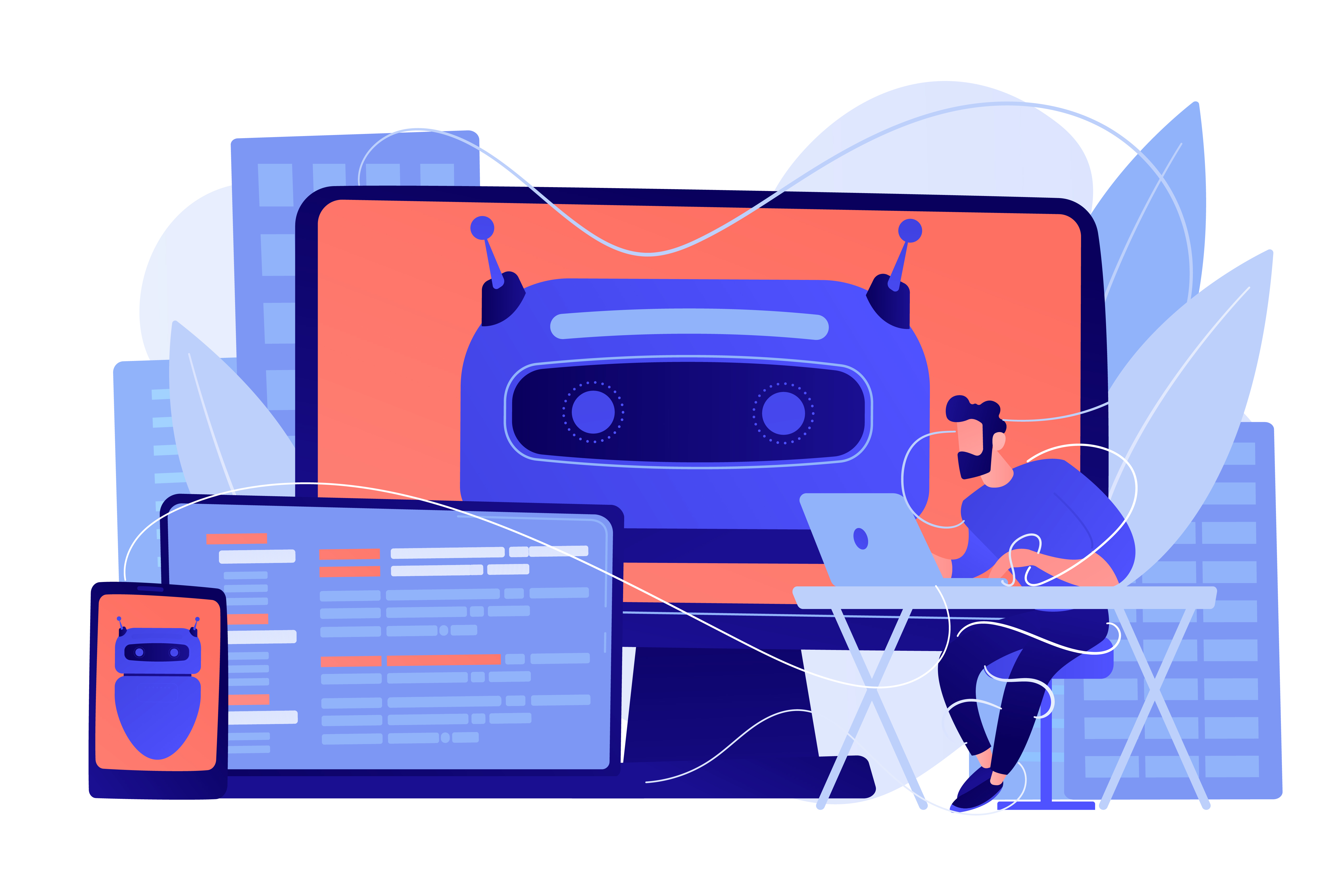AI in Food Industry and Logistics: Revolutionizing Operations and Efficiency

Strong 8k brings an ultra-HD IPTV experience to your living room and your pocket.
Artificial Intelligence (AI) is redefining industries worldwide, with profound impacts on the food industry and logistics. By leveraging data-driven insights, machine learning, and automation, AI is transforming traditional operations, making them more efficient, innovative, and sustainable. This article delves into how AI is applied in the food industry and logistics, exploring its significance, benefits, and future potential.
AI in the Food Industry: Innovating Every Stage
The food industry faces unique challenges, including food safety, waste management, and meeting dynamic consumer demands. AI offers solutions to these challenges through intelligent systems that optimize every stage of production and distribution.
1. Improving Food Safety and Quality
AI plays a vital role in enhancing food safety by monitoring production processes and identifying contamination risks. Advanced imaging systems and machine learning algorithms are used to detect foreign objects and ensure quality consistency.
Example: AI-powered cameras inspect food products for defects or contamination, reducing human error and ensuring compliance with safety standards.
2. Optimizing Supply Chains
The integration of AI in the food industry supply chain ensures efficient inventory management, demand forecasting, and distribution. Machine learning models analyze trends to predict consumer needs, reducing waste and improving stock availability.
Example: Supermarkets use AI-driven demand forecasting to adjust inventory levels, ensuring minimal food wastage.
3. Smart Agriculture
AI is revolutionizing agriculture, which underpins the food industry. Smart technologies like AI-powered drones, sensors, and robotics optimize farming practices, monitor crop health, and enhance yield.
Example: AI drones survey farmland to detect pest infestations and provide actionable insights for targeted interventions.
4. Personalized Nutrition
AI tailors dietary recommendations by analyzing health data and preferences. This approach caters to individual nutritional needs, improving customer satisfaction and promoting healthier eating habits.
Example: AI-based apps recommend personalized meal plans based on dietary restrictions and health goals.
5. Reducing Food Waste
AI systems analyze data to minimize food waste by predicting spoilage and suggesting efficient usage methods. These systems help restaurants and manufacturers cut costs while being environmentally responsible.
Example: AI-powered tools analyze historical data to prevent overproduction and suggest recycling strategies for unsold inventory.
AI in Logistics: Driving Smart Solutions
The AI in logistics sector is at the heart of global supply chains, and AI is enabling smarter, faster, and more cost-effective operations. From warehouse management to last-mile delivery, AI's role is transformative.
1. Efficient Route Optimization
AI enhances delivery efficiency by identifying the best routes using real-time data on traffic, weather, and road conditions. This not only saves time but also reduces fuel consumption and operational costs.
Example: Logistics firms use AI-driven navigation systems to reroute deliveries dynamically, ensuring timely arrivals.
2. Warehouse Automation
AI-powered robotics and inventory management systems are transforming warehouses. These technologies streamline order picking, sorting, and inventory tracking, increasing accuracy and reducing labor costs.
Example: Automated guided vehicles (AGVs) in warehouses retrieve items from shelves, ensuring faster and error-free order fulfillment.
3. Predictive Maintenance
AI systems monitor equipment performance, identifying potential issues before they result in costly breakdowns. Predictive maintenance reduces downtime and extends the life of machinery.
Example: AI alerts fleet managers about potential engine problems, allowing timely repairs and avoiding unexpected disruptions.
4. Last-Mile Delivery Innovations
AI has revolutionized last-mile delivery with autonomous vehicles and drones. These technologies ensure faster and more cost-effective deliveries, particularly in urban and remote areas.
Example: AI-enabled delivery robots bring parcels to customers’ doorsteps, reducing human intervention and improving efficiency.
5. Demand Forecasting
AI systems analyze historical data and market trends to predict demand patterns. This helps logistics companies optimize inventory and adjust production schedules to meet fluctuating demands.
Example: Retailers use AI-powered tools to anticipate holiday season demand, preventing overstocking or stockouts.
Bridging AI in the Food Industry and Logistics
The intersection of AI in the food industry and logistics creates a seamless supply chain, ensuring food safety, minimizing waste, and enhancing delivery efficiency.
1. Cold Chain Logistics
Cold chain logistics, critical for transporting perishable goods, benefits immensely from AI. Intelligent systems monitor temperature and humidity, ensuring optimal storage conditions during transit.
Example: AI sensors in refrigerated trucks alert logistics teams to temperature deviations, preventing spoilage.
2. Reducing Food Waste in Transit
AI predicts transit times and manages inventory to reduce spoilage during transportation. This ensures that perishable goods reach their destination in prime condition.
Example: AI algorithms analyze routes and recommend adjustments to minimize transit delays for fresh produce.
3. Real-Time Monitoring
AI enhances visibility into supply chains through real-time monitoring tools. This ensures food products are tracked at every stage, maintaining transparency and accountability.
Example: Blockchain integrated with AI provides end-to-end traceability of food shipments, building consumer trust.
Benefits of AI in Food Industry and Logistics
Enhanced Efficiency: AI automates complex processes, reducing manual effort and increasing productivity.
Cost Reduction: By optimizing operations, AI minimizes waste, fuel costs, and labor expenses.
Sustainability: AI promotes eco-friendly practices, including waste reduction and efficient resource utilization.
Customer Satisfaction: Faster deliveries and personalized products enhance the customer experience.
Scalability: AI enables businesses to scale operations seamlessly, adapting to changing demands.
Challenges of Implementing AI
Despite its numerous advantages, integrating AI in the food industry and logistics presents challenges:
High Initial Investment: Implementing AI systems requires significant capital for hardware, software, and infrastructure.
Data Privacy Concerns: The extensive use of customer data raises concerns about privacy and security.
Skill Gaps: Managing and maintaining AI systems demands skilled professionals, which may be scarce in some regions.
Integration Complexity: Adapting AI to existing processes can be time-consuming and technically challenging.
Future Prospects of AI in Food Industry and Logistics
As AI continues to evolve, its applications in the food industry and logistics will expand, driving greater innovation.
1. AI in Food Industry
Automated food production systems will improve efficiency.
AI-powered nutrition apps will become more sophisticated.
Sustainable agriculture will benefit from AI-driven insights.
2. AI in Logistics
Autonomous delivery systems, including drones and self-driving vehicles, will dominate logistics.
AI-integrated blockchain solutions will enhance transparency.
Predictive analytics will enable more accurate forecasting and decision-making.
Conclusion
AI is reshaping the food industry and logistics, offering unprecedented opportunities to innovate, optimize, and grow. From improving food safety and reducing waste to streamlining delivery systems and enhancing customer experiences, the applications of AI are vast and transformative.
The future of these industries lies in embracing AI technologies to overcome challenges, maximize efficiency, and build sustainable ecosystems. By integrating AI into their operations, businesses can stay ahead of the curve and thrive in an increasingly competitive landscape.
Whether it’s ensuring the freshness of a product or delivering it to the customer efficiently, AI is the cornerstone of modern advancements in the food industry and logistics.
Note: IndiBlogHub features both user-submitted and editorial content. We do not verify third-party contributions. Read our Disclaimer and Privacy Policyfor details.



